Just stumbled across that Sotheby's article from June 24, 2025, that reminds me contemporary and modern art are still in play, with some remarkable sales from the usual suspect. I was particularly pleased to see Roy Lichtenstein coming back on the front scene.
Here is the link to the original article: 6 remarkable highlights from the London sales
With The Summer Season in full swing at Sotheby’s London, there’s plenty to see, explore and bid on. Spanning the birth of Modernism through to the evolution of Abstract Expressionism and Pop Art, continuing into the 21st century, the Modern & Contemporary Evening Auction (24 June) encompasses more than a century of artistic production. Read on below for the works leading the pack on the rostrum.
Modern Art
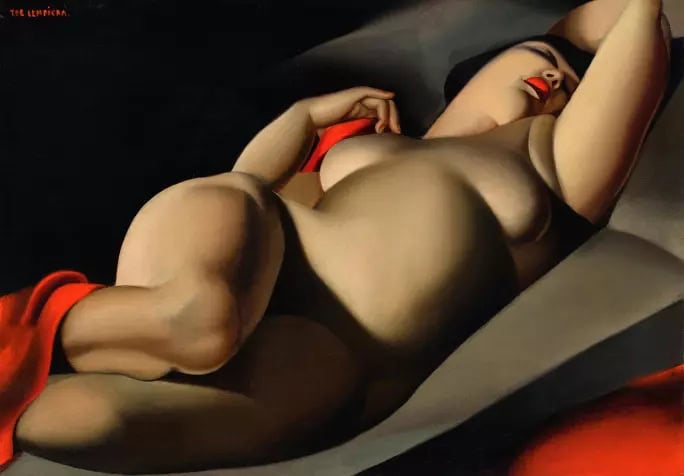
Tamara de Lempicka, La Belle Rafaëla, 1927, oil on canvas
Powerfully seductive and arresting in its uniquely modern vision of the greatest subject in Western Art, Lempicka’s La Belle Rafaëla from 1927 represents a radical pinnacle of her creative development as one of the most important women artists of the twentieth century. Described by the critics and scholars as “one of the most remarkable nudes of the century” and “the highest achievement of the painter's career”, La Belle Rafaëla stands as the quintessential example of Lempicka’s sensual and elegant style which has come to personify the Art Deco age.
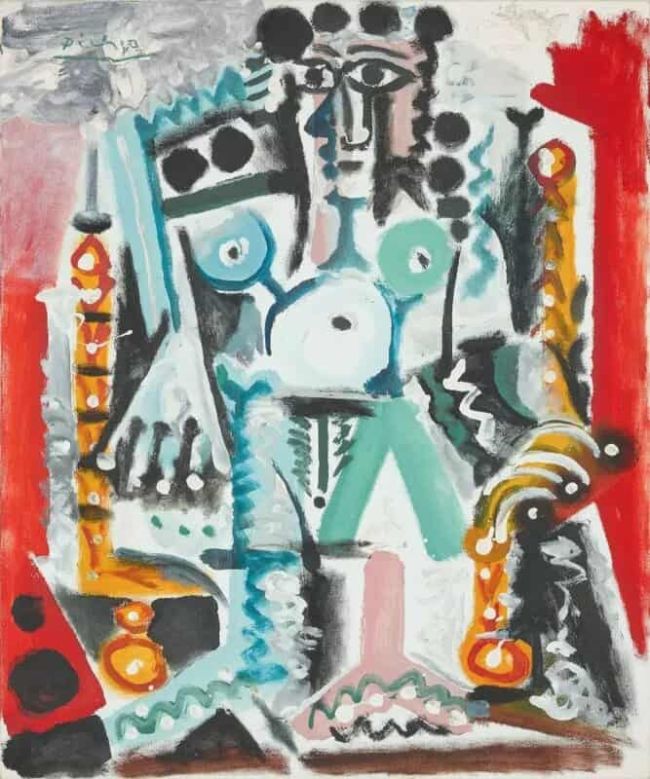
Nu assis dans un fauteuil belongs to a series of canvases on the theme of seated female nude Picasso executed in late 1964 – early 1965 at Notre-Dame-de-Vie, the home in Mougins which Picasso acquired as a gift for Jacqueline Roque shortly after their marriage in 1961. Bursting with colour and exuberant energy, this work bears witness to the extraordinary creative urge that characterised Picasso’s mature work. It is also testament to the renewed sense of joy and fulfillment that Jacqueline’s presence brought to the last seventeen years of Picasso’s life.
Painted in the summer of 1884, Claude Monet’s Aux Petites-Dalles captures a radiant hillside path along the Normandy coast, infused with the artist’s signature energy and profound sensitivity to nature’s fleeting effects. The work is a blissful homage to a cherished holiday destination that had long inspired the Impressionists and where Monet's familial and artistic worlds converged. In this dazzling composition, Monet synthesises personal memory, natural splendour, and formal experimentation – providing a vivid example of the Impressionist master’s unparalleled ability to render the ephemeral effects of light, atmosphere, and place.
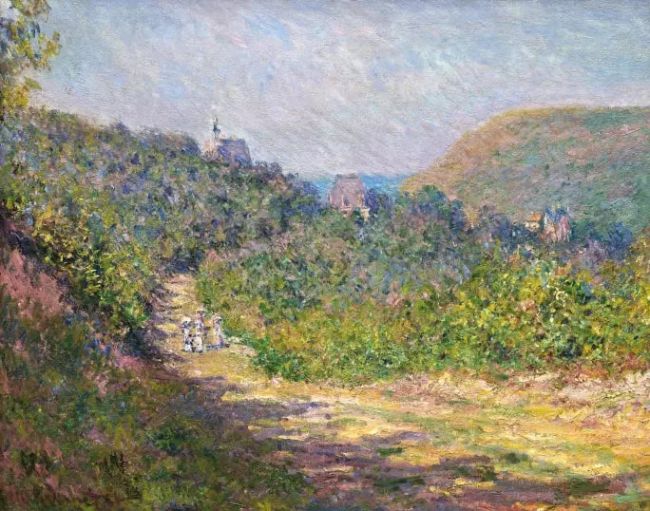
Contemporary Art

Revelling in its fleshy abundance and towering at an all-encompassing three metres in height, Jenny Saville’s blockbuster Juncture from 1994 stages a spectacle in pure unadulterated pigment, underscoring the painter's approach to the figurative tradition. A landmark within the artist's epochal series of 1990s monumental nudes, Juncture brazenly asserts itself not as a passive representation but as an alive, organic and active force, potent with theatricality and corporeality, and refusing to be overlooked. Widely documented across critical literature on Saville and exhibited in some of the most prestigious museums worldwide, Saville’s confrontational portrait proclaims her as one of the most compelling and innovative painters of a generation, inaugurating a visual language that is both unapologetically feminist and emotively visceral.
Captivating in its electric immediacy, Untitled (Indian Head) is a superlative example from Jean-Michel Basquiat’s most celebrated and enduring motif, the iconic skull-like head. The Heads, shaped with corporal density and fervent expression, act as both self-portraits and icons, occupying a central place in his most acclaimed masterworks. Executed in 1981, the critical year which heralded his ascent from SAMO©, the street provocateur, to the prodigy of the mainstream art world – during which time he also began producing artworks under his own name – Untitled (Indian Head) powerfully asserts Basquiat’s instinctive and lauded abilities as one of the greatest draughtsmen of the twentieth century.
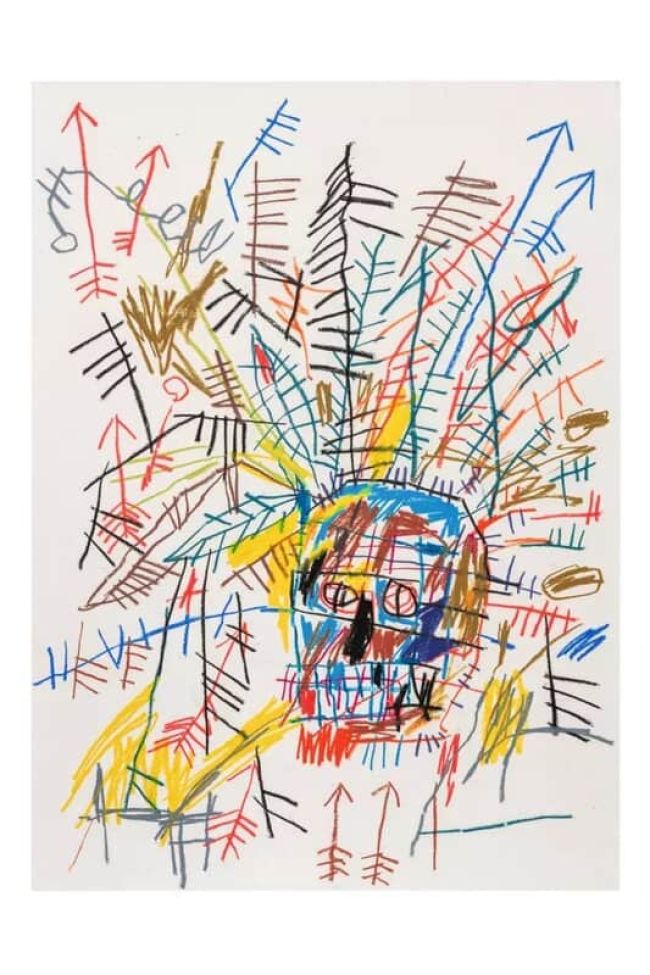
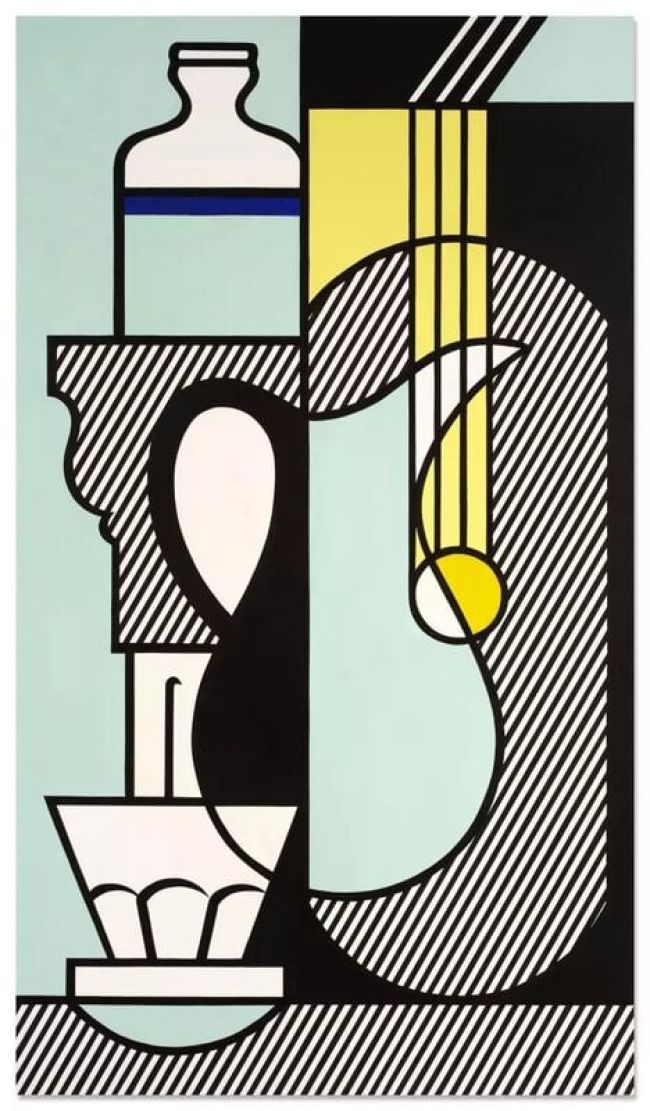
Fusing a playful palette and a rigorous intellectual project, Purist Still Life with Pitcher is a stunning articulation of Roy Lichtenstein’s brilliant command of line, colour and concept. Exemplifying Lichtenstein’s celebrated reductive aesthetic and intuitive compositional awareness, Purist Still Life with Pitcher ironically translates the tenets and tropes of Purism into the artist’s own signature Ben-Day dotted Pop Art style. Using a minimum of colours and decorative art-nouveau forms, Lichtenstein here constructs his mock Purist composition from layered planes of juxtaposed colour and line to achieve a uniformity and control which blends the mechanical aesthetic of mass reproduction with this bastion of Modernism.